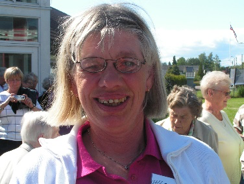Ageing
2. Ageing process
2.1. Process of ageing
Older people create the clearest palette for personality and they become increasingly different from one another as they age. They become more and more like ‘themselves’. There is no one ‘right’ way for people to grow old (1).
 |
 |
 |
 |
|---|
Photo: Lars Aage Hynne
People with ID, without major additional disabilities, have the same life expectancy as the general population. But it is a fact that persons with ID are more exposed to health problems and are often more vulnerable to developing psycho-social difficulties (2).
Reduced health and discounted functions result in not only a stressful situation for the person himself, but also for the next of kin. 'Double ageing' may be difficult, when parents and children get the ageing problems at same time (3).
Other challenges the person and their family may experience are:
- Lack of national (and local) senior policy that take into account retirement (less opportunities of life planning)
- Lack of support systems that follow up increased assistance at home (more burden for the family)
- Less network of friends and social participation (less opportunity to maintain contact with former colleagues and to establish new social contacts)
- Make a list of what you think will be most difficult for your child/sibling/client, when they become an old person?
- Make your personal list of what you think will be most difficult for your family (the service), when the person is old.
- Ask your child/sibling/client about strategies to cope with their ageing process, - reflect on answers you hear.